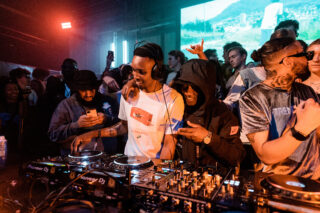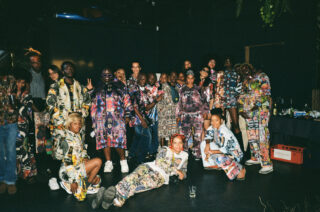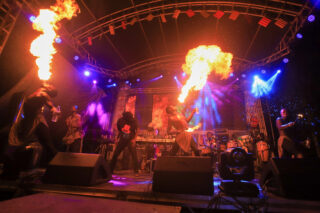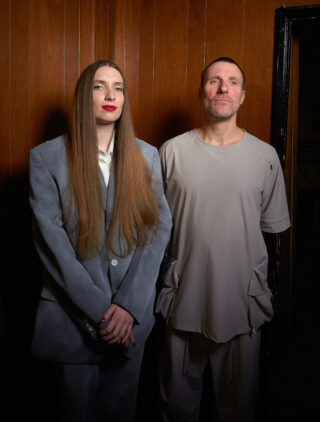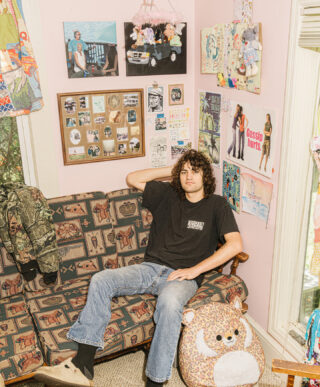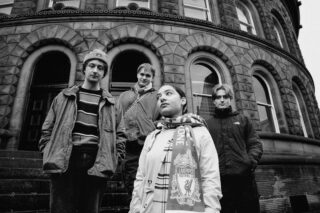In 2015, Dilsizian and Debru took a significant step and staged the first Nyege Nyege Festival in Jinja (where they are today), and thanks to the residencies they’d been hosting at their villa-cum-studio courtesy of the film school, a label, Nyege Nyege Tapes, wasn’t far behind. The first festival picked up from where their Kampala parties – which within a couple of years had gone from post-film DIY dances to two-to-three-day raves – had left off, throwing together a wild mix of experimental and leftfield sounds on the banks of the Nile.
“It was a bit crazy: we organised it in two months with a mix of artists we’d been working with and some traditional bands,” recalls Debru.
“We put our life savings into it and invited musicians from across the continent to this dilapidated old resort,” says Dilsizian, “and it created this sort of moment in Uganda and East Africa, when people found another way to party.”
The international attention that the festival received naturally exposed the collective that had formed around Nyege Nyege to a far wider audience than ever before, beyond Uganda and into the consciousness of music nerds the world over (particularly in Europe and North America) opening a potentially lucrative market for the record label they got up and running by 2016.
 At this point, I wonder how this made the founders feel, as their idiosyncratic, locally-focused project began to be appreciated – and scrutinised – by listeners with little idea of the reality of life in East Africa, particularly in a context where music that isn’t from the Global North is so frequently exoticised, caricatured or, most frequently, outright ignored.
At this point, I wonder how this made the founders feel, as their idiosyncratic, locally-focused project began to be appreciated – and scrutinised – by listeners with little idea of the reality of life in East Africa, particularly in a context where music that isn’t from the Global North is so frequently exoticised, caricatured or, most frequently, outright ignored.
“From the beginning there was always the idea that if we’re going to do something in music and culture there has to be an economics behind it, because most of the artists we work with are really economically disenfranchised,” says Debru, seriously now. “If you’re going to do something alternative, how are you going to earn something from it? Clearly, there is an initial audience in Europe – music heads, crate-diggers who are looking for something different, and East Africa was totally unrepresented at that time. But it was also us thinking in very practical terms – how can you support your own livelihoods, send your kids to school, or pay rent? And if we don’t find income locally, then where is it going to be? And it so happened that we did get some initial support from European music listeners and avant-garde programmers – Unsound, CTM – they’ve been really critical.”
“Also,” adds Dilsizian, “this applies to a lot of places in the world. A lot of Chicago artists, for example, the likes of DJ Rashad, played way more in Europe than at home, and to this day have never played in America outside of Chicago, but they’ll get shows in Europe. You have [Detroit techno legend] Stingray and a lot of American DJs that relocate to Berlin, just because of the economics of performing in this one continent with so many promoters and so much money being pumped into culture.
“We did a release with DJ K, showcasing this new sound from Heliópolis, a slum in São Paolo. He only used to play in his local favela, but since we did the release a Pitchfork article and DJ Mag feature came out, and he’s now getting booked in middle class, uptown clubs in São Paulo every weekend. So on the one hand, you have that thing where the Western validation also helps push you locally – [gqom pioneer] DJ Lag, for example, only blew up in South Africa after he’d broken through internationally – and then at the same time, when we look at our Bandcamp sales, it’s the UK, America, Germany, Japan: those are the markets where people are willing to pay for music.”




